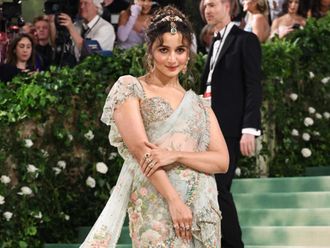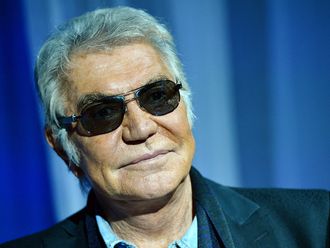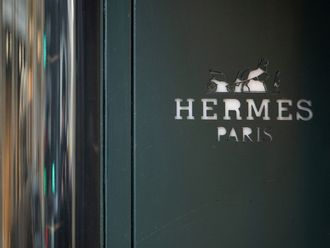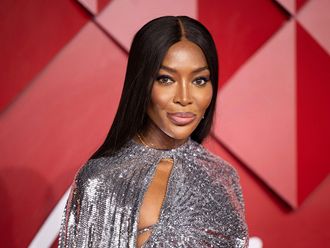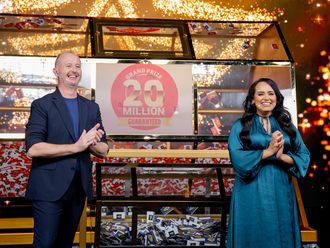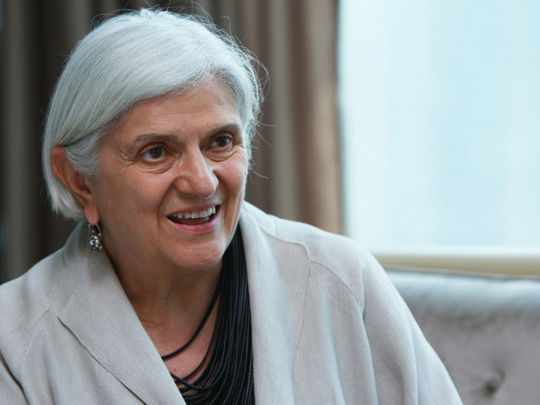
Dressed in simple pastel linen trousers and jacket paired with a black shirt, and sans make up, on first look Laura Lusuardi will never give you the impression she is the fashion director at one of world’s best known prêt-à-porter wear houses.
Having worked with two generations at the family-owned Max Mara for half a century, the soft-spoken Lusuardi was in Dubai last week to launch the Max Mara Fall/Winter collection. She met tabloid! at the chic Atelier M in Dubai Marina to discuss fashion and being a woman in the business of fashion.
You joined Max Mara in 1964. How have you seen the fashion world and the company change?
Max Mara represents the evolution of fashion, always keeping in mind that the end user is a woman. Fashion is constantly changing according to the lifestyle of the woman, her needs, and our collections reflect that. We’ve always believed it’s important to have a direct link to the end user. In the 1980s, we started setting up all over the world and in the last few years the approach to fashion has changed a lot. Europe witnessed the first career-conscious/business oriented women in the 1980s and they demanded a certain style of dresses and suits for work. We are seeing the same change again in this part of the world now. This woman wants to be independent yet comfortable in the boardroom and when she goes out in the evening, she wants to look elegant and chic. For the last few years, I’ve noticed a bigger change in the use of accessories.
This is the first time I’m here [in Dubai] and I went to the Max Mara store today to get a feel of things. Within 10 minutes of me being there, an Arab woman approached me and complimented me. She said ever since she came to know of Max Mara she only wore Max Mara. She was completely covered. Another woman, a Lebanese wore a beautiful skirt and then there was a very chic American woman who was trying on a dress — all in one store. So you can really see the diversity of the market here.
What does fashion mean to you and what inspires you?
To me fashion is intuition, curiosity, passion and experience. Today I understand what women want and that’s not just because of my experience but intuition and passion. I work with creativity so it just has to be teamwork.
Who do you think are the new designers one should look out for?
My job entails a lot of scouting for new talent. But it’s not easy to find really creative people. Also, with being creative they need to have a personality. Plus, it’s very difficult for a young designer to showcase their work. Today there are a lot of copycats who see works of others on the internet and recreate. At the same time I’m not saying there are no creative ones. I really like Giambattista Valli, Massimo Giorgetti ...
For fashion you really need to have a personal style, and they have that. Then there’s [Karl] Lagerfeld. He is the king.
Being a woman and starting work in an era when women had not fully emerged on the workforce, what challenges did you face?
It’s been a constant fight. But I like challenges. The good part is that Max Mara is a family-owned business and they are very involved, willing to look ahead and ready to evolve. I’ve worked with the first generation and now I’m working with the second. It’s not easy to find people with the same passion to do a job.
A woman is lucky if she has an understanding husband. I’m married and have two children. I’ve had to make a lot of sacrifices because work needs to come first and you keep looking at the watch. When I joined Max Mara, a lot of women were already working there. It may have been founded by a man but always had many, many women working there, from the seamstresses and upwards. Eighty per cent of the staff is women.
Who would you call your mentor?
Achille Maramotti, the founder of Max Mara. When I joined the company I was just 18. I observed and absorbed like a sponge. There is always something to learn. You cannot know everything so you have to constantly keep observing.
What do you consider your mantra of success?
I don’t think of success. When you know what to do and how to do it, do the best you can. What is success for me? It’s to see women on the street wearing Max Mara.
What makes a woman beautiful?
Her simplicity and elegance. Arab women have a natural elegance and unique femininity, even when they are all covered. A woman has to be herself and not try to be anyone else.


